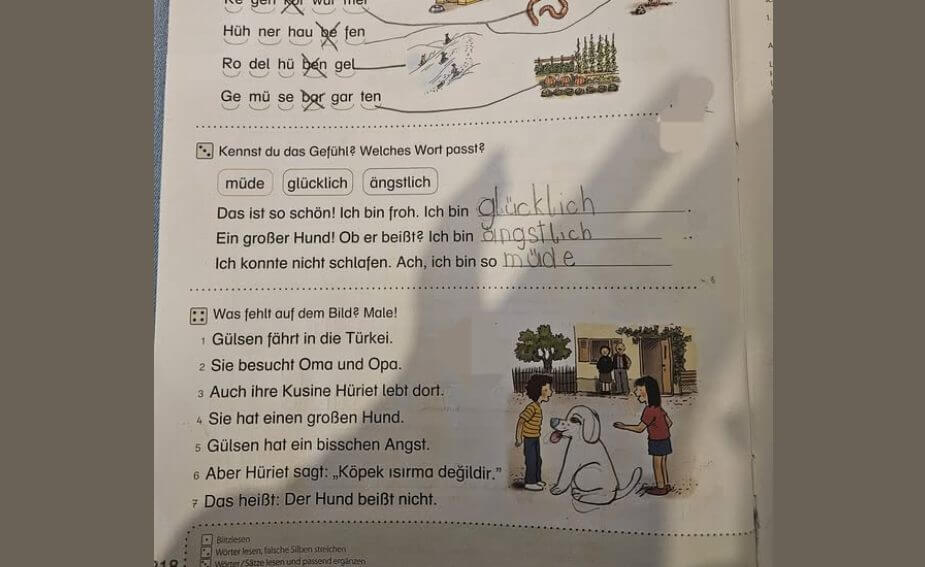
Austrian Textbooks Teeming with Muslim Names Outrage Parents
Styrian textbook features a girl named “Gulsen” visiting her grandparents in Turkey, where her cousin “Huriet” reassures her that the local dog won’t bite—a sentence written in Turkish. The infiltration of foreign cultural elements into educational materials sparked protest among parents.
The Turkish sentence,“Kopek isirma degildir” – meaning “The dog does not bite” – appears in an Austrian textbook used by elementary school children in Styria. This was first reported by Styrian social media figure Marco Wagner in a Facebook post.
Parents outraged, children confused
Many parents are upset that foreign cultures are now infiltrating into school curricula. Some are questioning why such sentences are included in Austrian textbooks at all.
One mother shared on Facebook that her second-grade daughter received a similar assignment. The young girl had no idea what the unfamiliar words meant. The mother explained that they were names, which left the child feeling confused. In another textbook, second graders are asked to write the sentence: “Yasin mixt einen Zaubertrank” – which translates to “Yasin mixes a magic potion.”
Doch damit nicht genug. In einem steirischen Schulbuch fährt ein Mädchen namens „Gülsen” zu Oma und Opa in die Türkei. Dort lebt auch ihre „Kusine Hüriet”. Letzere beschwichtigt „Gülsen”, dass der dortige Hund nicht beißt – was tatsächlich auf Türkisch i… https://t.co/KgjkX3b8EB
— exxpress (@exxpressat) May 22, 2025
Recently, many parents have questioned why Austrian-sounding names are no longer featured in schoolbooks. Some believe that textbook editors made this change to avoid making the many Turkish and Muslim children in Austrian schools feel discriminated against due to German names.
However, this move has reportedly intensified resentment among Austrians, many of whom now feel like strangers in their own country.
This frustration is compounded by the fact that in many Austrian primary schools—particularly in Vienna—students with migrant backgrounds now make up the majority.
Name used in textbooks conveys Islamic religious reference
The name “Yasin” is a common male first name in many Muslim cultures. It has Arabic roots and references a chapter in the Quran.
For many Muslims, Yasin holds spiritual and religious significance, symbolizing faith and connection to God. It is often seen as a symbol of wisdom and knowledge, and in some cultures, the name is believed to bring protection and blessings, according to exxpress.at.

